8 Mills of Erwin Mills
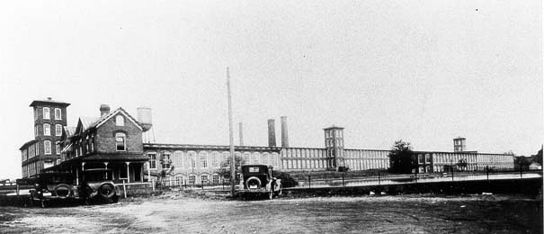
Mill No. 1, Durham, NC: It all started on Ninth Street in 1892 (photo taken in 1930).
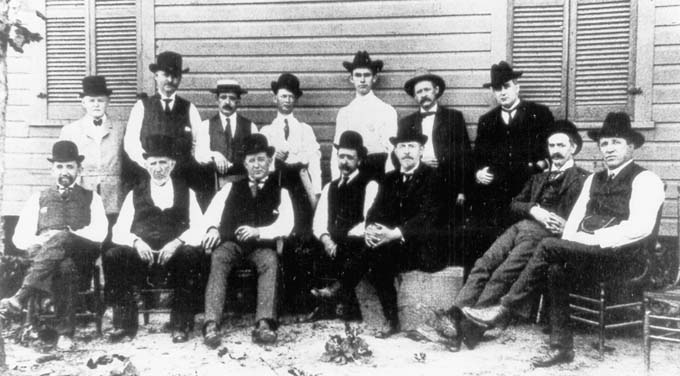
Mill No.2 , Erwin, NC: Fourteen men with prominent positions in the Durham community: (front, left-right) BN Duke, Washington Duke, JB Duke, TJ Walker, AB Carrington, JS Cobb, John Angier; (back) Dr. AG Carr, WA Erwin, JE Stagg, Frank Tate (in charge of building Erwin Mill No. 2), ES Yarbrough, Capt. Lemon (in charge of building Durham & Southern railroad) and FL Fuller (photo taken in 1904).
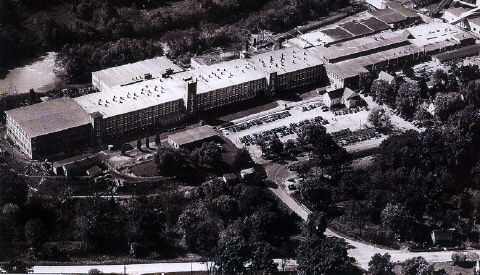
Mill No. 3, Cooleemee, NC
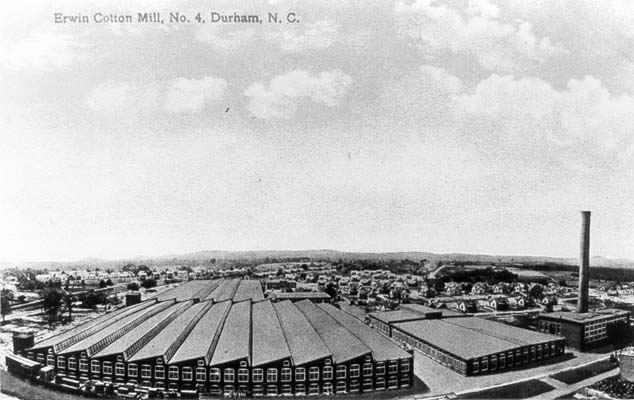
Mill No. 4, Durham, NC.
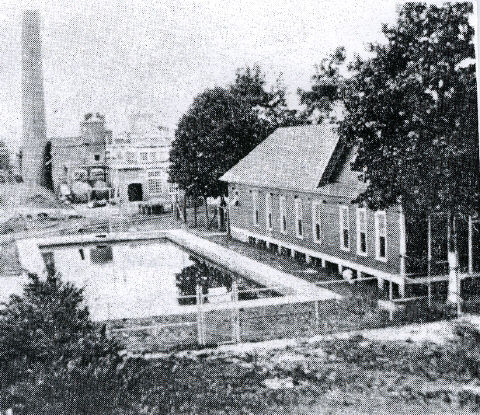
Mill No. 5, Erwin, NC: Erwin pool next to the mills
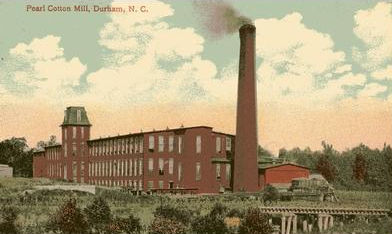
Mill No. 6, Durham, NC: Brodie Duke built the Pearl Mills on nearby Trinity Avenue in 1892 and named them after his daughter. Wash Duke's oldest son, Brodie was the first Duke to move into Durham. Mill houses were built across the railroad tracks on Washington and Orient streets. Erwin Mills purchased the Pearl Cotton Mills in 1932.
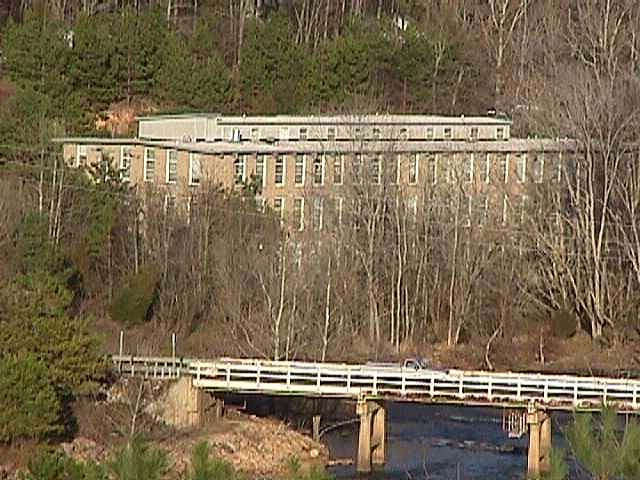
Mill No. 7, Wake County, NC. Erwin Mills purchased Diana Mills (on the Neuse in Wake County) in 1948.

Mill No. 8 (Stonewall, MS)
Erwin Cotton Mills Timeline
| 1892 | Erwin Cotton Mills incorporated, the Duke family owning a controlling interest with Benjamin N. Duke as president and William Allen Erwin as manager. |
| 1893 | Mill No. 1 began operation in Old West Durham |
| 1896 | Mill No. 1 doubled in size |
| 1903 | Mill No. 2 built at Duke (now Erwin), Harnett County, NC |
| 1906 | Cooleemee Cotton Mills, Cooleemee, Davie County, NC, acquired and operated as Mill No. 3 |
| 1910 | Mill No. 4, bleachery and finishing plant built in Old West Durham |
| 1926 | Mill No. 5 built at Erwin, NC |
| 1927 | William Erwin succeeded BN Duke as president |
| 1932 | Pearl Cotton Mills on Trinity Avenue acquired and operated as Mill No. 6 |
| 1932 | Kemp Plummer Lewis succeeded WA Erwin as president |
| 1948 | Diana Mills at Neuse, Wake County, NC, acquired and operated as Mill No. 7 |
| 1948 | Stonewall Cotton Mills, Stonewall, Mississippi, acquired and operated as Mill No. 8 |
| 1948 | William Haywood Ruffin succeeded KP Lewis as president |
| 1949 | Accounting procedures changed from longtime standard forms posted by hand to radically different forms utilizing business machines |
| 1953 | Abney Mills of South Carolina acquired control and its president, Francis Ebenezer Grier, became chairman of the board |
| 1960 | Burlington Industries acquired control, Erwin Mills continuing as one of its divisions |
| 1969 | Pearl Cotton Mills (Mill No. 6) closed |
| 1986 | J.P. Stevens acquired and closed plant in Old West Durham |
